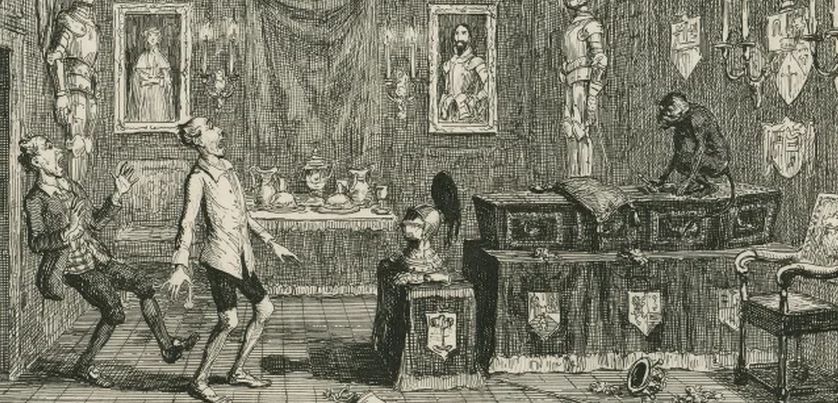 Warning, this story by Sir Walter Scott can be hard going for inexperienced readers due to its use of original dialect and obsolete vocabulary. When a violent Scottish Lord presses a tenant for long outstanding rent, the man borrows the money and returns to pay it. The Lord dies as he hands it over, and the money disappears during the commotion. The Lord’s son doesn’t believe the rent was paid, and demands payment. A mysterious stranger helps the devastated tenant by accompanying him to hell to collect a receipt. Themes: changing times, the supernatural, beware who you travel with. More…
Warning, this story by Sir Walter Scott can be hard going for inexperienced readers due to its use of original dialect and obsolete vocabulary. When a violent Scottish Lord presses a tenant for long outstanding rent, the man borrows the money and returns to pay it. The Lord dies as he hands it over, and the money disappears during the commotion. The Lord’s son doesn’t believe the rent was paid, and demands payment. A mysterious stranger helps the devastated tenant by accompanying him to hell to collect a receipt. Themes: changing times, the supernatural, beware who you travel with. More…
Category Archives: Novelettes
Immortality
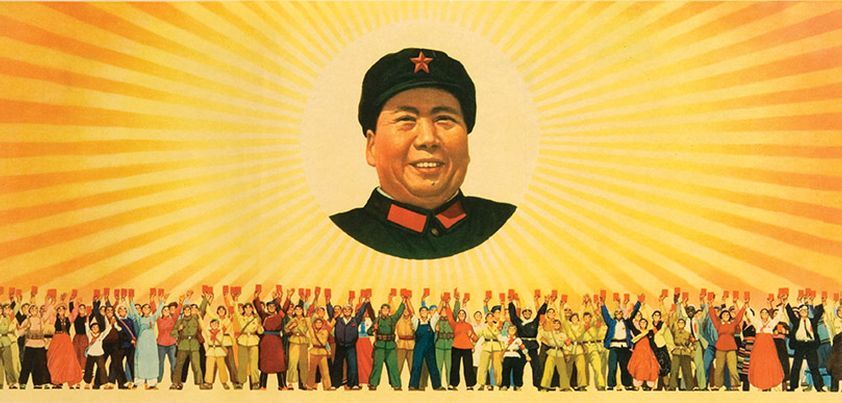 Yiyun Li’s story exploring aspects of China’s transition from empire to communist super-power is unusual in that its point of view is not that of a single character, but rather the collective voice of a rural community. Central themes are lack of power of the individual (symbolized by emasculation), and abuse of power by the ruling classes. Secondary themes are the methods adopted by the Communist Party to consolidate its power (indoctrination through cultism, repression and fear), and the changes taking place as modern technology exposes the masses to Western lifestyles and values. More…
Yiyun Li’s story exploring aspects of China’s transition from empire to communist super-power is unusual in that its point of view is not that of a single character, but rather the collective voice of a rural community. Central themes are lack of power of the individual (symbolized by emasculation), and abuse of power by the ruling classes. Secondary themes are the methods adopted by the Communist Party to consolidate its power (indoctrination through cultism, repression and fear), and the changes taking place as modern technology exposes the masses to Western lifestyles and values. More…
The Man in the Black Suit
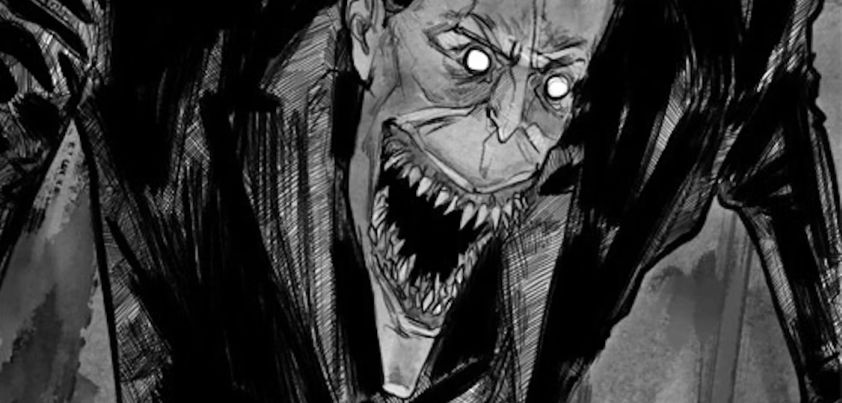 This story from Stephen King builds on a common legend in folklore in which an unsuspecting protagonist is tempted by the devil. King made two changes to the standard plot that result in a truly frightening the tale. First, the devil’s target is an innocent nine-year-old boy. Second, instead of the devil’s usual objective of offering an earthly reward in exchange for the boy’s soul, this devil is hungry and plans to give the poor lad a heavenly reward by eating him. Themes: isolation, innocence, the supernatural, deception, fear, religious belief, life-long trauma, aging and death. More…
This story from Stephen King builds on a common legend in folklore in which an unsuspecting protagonist is tempted by the devil. King made two changes to the standard plot that result in a truly frightening the tale. First, the devil’s target is an innocent nine-year-old boy. Second, instead of the devil’s usual objective of offering an earthly reward in exchange for the boy’s soul, this devil is hungry and plans to give the poor lad a heavenly reward by eating him. Themes: isolation, innocence, the supernatural, deception, fear, religious belief, life-long trauma, aging and death. More…
When the Mice Failed to Arrive
 In 2018, the New York Times dubbed Gerald Murnane “the greatest living English-language writer most people have never heard of.” Now 83, Murnane has remained largely unknown due to his distinctive stream of consciousness writing style. Stories contain frequent changes of perspective from character to character, and between past and present. In When the Mice Failed to Arrive, a storm breaking as a father waits for his son to come home from school triggers memories of the man’s earlier life. Themes include father-son relationships, childhood anxiety, religious parody, awakening sexuality, insecurity, deceit, and what some may consider animal cruelty. More…
In 2018, the New York Times dubbed Gerald Murnane “the greatest living English-language writer most people have never heard of.” Now 83, Murnane has remained largely unknown due to his distinctive stream of consciousness writing style. Stories contain frequent changes of perspective from character to character, and between past and present. In When the Mice Failed to Arrive, a storm breaking as a father waits for his son to come home from school triggers memories of the man’s earlier life. Themes include father-son relationships, childhood anxiety, religious parody, awakening sexuality, insecurity, deceit, and what some may consider animal cruelty. More…
Someone to Talk To
 The major theme of this story by Deborah Eisenberg is the need to be heard. A once up-and-coming concert pianist struggles to deal with a stalled career and failed relationship. Potential salvation arrives with an invitation to perform in an unnamed Latin American Country. Patronizing treatment by the concert’s upper-class organizers, a walk through poorer neighborhoods, and the inane behavior of an English radio journalist, emphasize the importance for people of all persuasions to not only speak out, but also be heard and understood. Other themes: loneliness, alienation, elitism, class, poverty, oppression, indifference to the suffering of others. More…
The major theme of this story by Deborah Eisenberg is the need to be heard. A once up-and-coming concert pianist struggles to deal with a stalled career and failed relationship. Potential salvation arrives with an invitation to perform in an unnamed Latin American Country. Patronizing treatment by the concert’s upper-class organizers, a walk through poorer neighborhoods, and the inane behavior of an English radio journalist, emphasize the importance for people of all persuasions to not only speak out, but also be heard and understood. Other themes: loneliness, alienation, elitism, class, poverty, oppression, indifference to the suffering of others. More…
The Grand Inquisitor
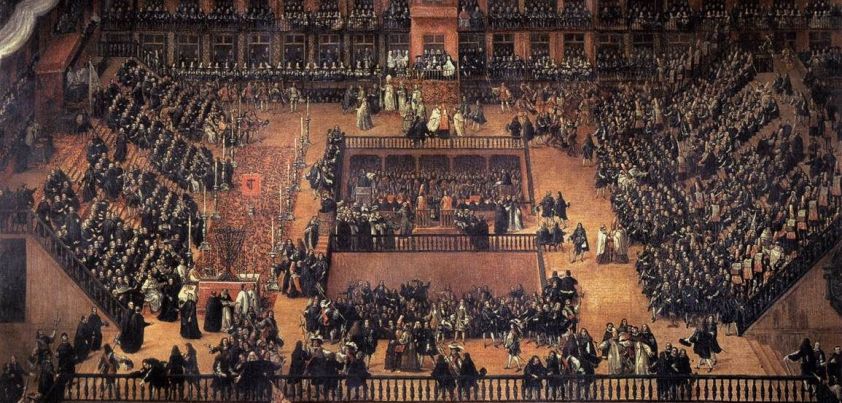 This story is a chapter from Fyodor Dostoevsky’s acclaimed novel, The Brothers Karamazov. Jesus makes a quick visit to Seville amid the suffering of the Spanish Inquisition. When he starts preforming miracles the Grand Inquisitor, a Cardinal, has him arrested. He visits Jesus in his cell and declares that he is no longer welcome on Earth because his message (spiritual freedom and the right to choose good or evil) is at odds with the teachings of the Church (forced belief through miracle, mystery, and authority). Themes include God and religion, free will vs. Catholic authoritarianism, suffering and human weakness. More…
This story is a chapter from Fyodor Dostoevsky’s acclaimed novel, The Brothers Karamazov. Jesus makes a quick visit to Seville amid the suffering of the Spanish Inquisition. When he starts preforming miracles the Grand Inquisitor, a Cardinal, has him arrested. He visits Jesus in his cell and declares that he is no longer welcome on Earth because his message (spiritual freedom and the right to choose good or evil) is at odds with the teachings of the Church (forced belief through miracle, mystery, and authority). Themes include God and religion, free will vs. Catholic authoritarianism, suffering and human weakness. More…
Saint Manuel Bueno, Martyr
 This Miguel de Unamuno story (aka Saint Emmanuel the Good, Martyr) is a memoir by a Spanish woman reflecting on her close connection with a Catholic priest about to be beatified. The outwardly pious man, who was credited with several miracles and spent his life ministering to the people of her remote mountain village, harbored an astonishing secret. His life had been a charade for the supposed good of the villagers… he did not believe in God! Themes include existentialism, self-sacrifice, community, the nature and role of religion, New vs. Old World values, identity, truth vs. ignorance and bliss. More…
This Miguel de Unamuno story (aka Saint Emmanuel the Good, Martyr) is a memoir by a Spanish woman reflecting on her close connection with a Catholic priest about to be beatified. The outwardly pious man, who was credited with several miracles and spent his life ministering to the people of her remote mountain village, harbored an astonishing secret. His life had been a charade for the supposed good of the villagers… he did not believe in God! Themes include existentialism, self-sacrifice, community, the nature and role of religion, New vs. Old World values, identity, truth vs. ignorance and bliss. More…
The Best Girlfriend You Never Had
 If you are looking for a story with a traditional plot structure, this work of contemporary fiction by Pam Houston is not for you. The story comprises fourteen anecdotes and observations about the life of a thirty-one-year-old woman who comes to San Francisco seeking order and romantic love. Instead, she finds chaos and frustration. Obsessed with finding the right man, she always seems to identify with the wrong ones. The one man in her life she has strong feelings for calls himself the best girlfriend you never had. Themes: order vs. chaos, friendship vs. romantic love, self-esteem, fear, enlightenment, change. More…
If you are looking for a story with a traditional plot structure, this work of contemporary fiction by Pam Houston is not for you. The story comprises fourteen anecdotes and observations about the life of a thirty-one-year-old woman who comes to San Francisco seeking order and romantic love. Instead, she finds chaos and frustration. Obsessed with finding the right man, she always seems to identify with the wrong ones. The one man in her life she has strong feelings for calls himself the best girlfriend you never had. Themes: order vs. chaos, friendship vs. romantic love, self-esteem, fear, enlightenment, change. More…
The Difference
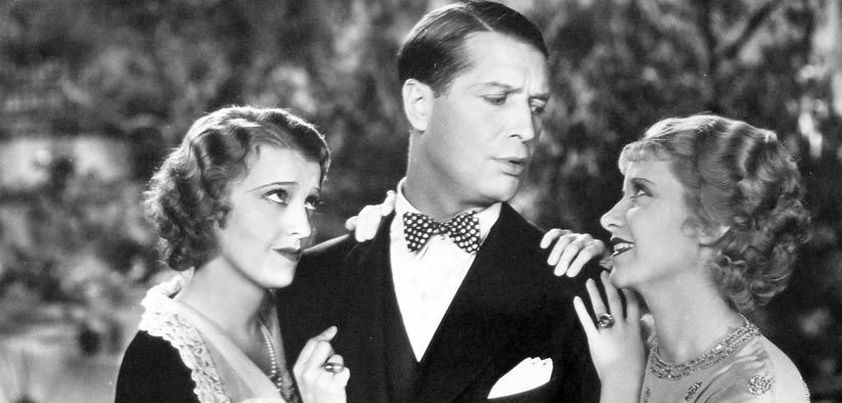 A more apt title for this story by Ellen Glasgow would be The Differences. It explores differences in attitudes to love, marriage and infidelity between men and women, and between women born in the Victorian era and those born in the early 1900s. A middle-aged woman’s calm existence is shattered when she receives a letter from the much younger mistress of her husband of twenty years. She meets the woman, confronts her husband, and initiates a discussion about who loves whom and what is to be done about it. Themes include gender roles, love and adultery, the generation gap, sacrifice. More…
A more apt title for this story by Ellen Glasgow would be The Differences. It explores differences in attitudes to love, marriage and infidelity between men and women, and between women born in the Victorian era and those born in the early 1900s. A middle-aged woman’s calm existence is shattered when she receives a letter from the much younger mistress of her husband of twenty years. She meets the woman, confronts her husband, and initiates a discussion about who loves whom and what is to be done about it. Themes include gender roles, love and adultery, the generation gap, sacrifice. More…
For Esmé with Love and Squalor
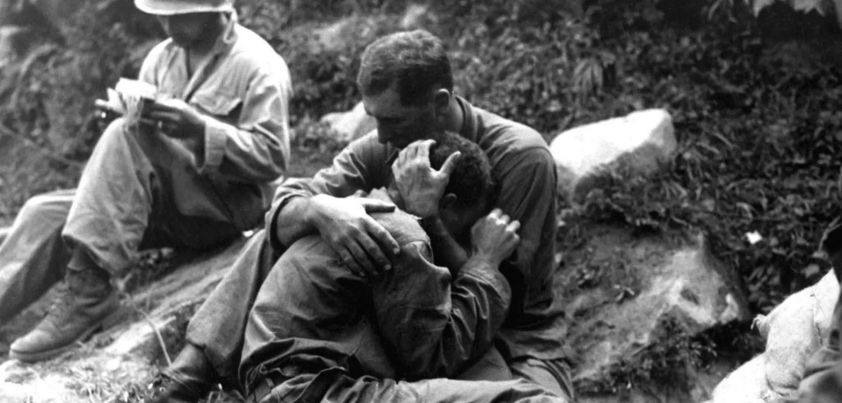 J. D. Salinger’s Esmé is a precocious, orphaned teenage girl whose friendship and compassion help a young American soldier deal with the horrors of war. Salinger’s characterization of the soldier (Staff Sergeant X) in the second part of the story suggests first-hand experience with PTSD. This was misunderstood at the time, as reflected in the comment from Clay’s girlfriend: nobody gets a nervous breakdown just from the war and all. She says you probably were unstable like, your whole goddam life. Major themes: youthful innocence, the brutality of war and its effect on mental health, loss, humanity and hope. More…
J. D. Salinger’s Esmé is a precocious, orphaned teenage girl whose friendship and compassion help a young American soldier deal with the horrors of war. Salinger’s characterization of the soldier (Staff Sergeant X) in the second part of the story suggests first-hand experience with PTSD. This was misunderstood at the time, as reflected in the comment from Clay’s girlfriend: nobody gets a nervous breakdown just from the war and all. She says you probably were unstable like, your whole goddam life. Major themes: youthful innocence, the brutality of war and its effect on mental health, loss, humanity and hope. More…
Holiday
 In this disturbing story from Katherine Porter, a young woman suffering undisclosed “troubles” decides she needs a holiday. On the recommendation of a friend, she visits the farm of a German immigrant family. During her stay, she feels a special connection with a “crippled, badly deformed” serving girl. Later, she is concerned to learn that the girl is the parent’s older daughter who, because of her disabilities, has been consigned to a life of drudgery and is largely ignored by the otherwise loving family. Themes: family, gender roles, the beauty and power of nature, alienation, suffering, life and death, humanity. More…
In this disturbing story from Katherine Porter, a young woman suffering undisclosed “troubles” decides she needs a holiday. On the recommendation of a friend, she visits the farm of a German immigrant family. During her stay, she feels a special connection with a “crippled, badly deformed” serving girl. Later, she is concerned to learn that the girl is the parent’s older daughter who, because of her disabilities, has been consigned to a life of drudgery and is largely ignored by the otherwise loving family. Themes: family, gender roles, the beauty and power of nature, alienation, suffering, life and death, humanity. More…
Winter Dreams
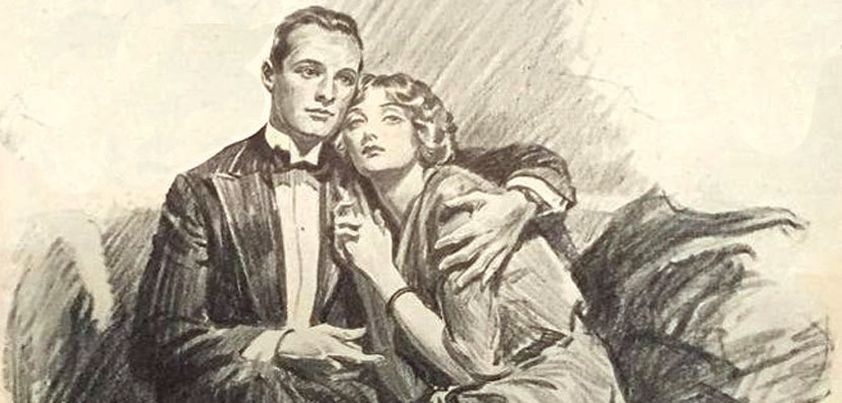 The protagonist in this F. Scott Fitzgerald story has two dreams (three if you count defeating Mr. Hedrick at golf!) The first is the Great American Dream (to become wealthy despite humble beginnings), which he achieves. The second is to win the heart of the seemingly heartless Miss Judy Jones, which proves unachievable. He is a typical Fitzgerald male: driven, successful and passionate about marrying (possessing) Judy where others have failed. Spoiled Judy is a tragic figure: take away the thrill of being chased, and there is little left. Themes include social class, ambition, success, romance, hollowness, failure, disillusionment. More…
The protagonist in this F. Scott Fitzgerald story has two dreams (three if you count defeating Mr. Hedrick at golf!) The first is the Great American Dream (to become wealthy despite humble beginnings), which he achieves. The second is to win the heart of the seemingly heartless Miss Judy Jones, which proves unachievable. He is a typical Fitzgerald male: driven, successful and passionate about marrying (possessing) Judy where others have failed. Spoiled Judy is a tragic figure: take away the thrill of being chased, and there is little left. Themes include social class, ambition, success, romance, hollowness, failure, disillusionment. More…
The Queen of Spades
 This entertaining, quite witty story from Alexander Pushkin shows how greed can overcome our better judgement when presented with a seemingly easy way to make money. A young soldier spends hours watching his fellow officers gamble at cards. He never joins in because he can’t afford to risk his small savings. When he learns that an old socialite knows a secret strategy that always wins at faro, he devises a heartless plan to learn it. He begins to gamble using her information, winning and doubling the bet each time. Unfortunately for him, the old socialite has the last laugh. More…
This entertaining, quite witty story from Alexander Pushkin shows how greed can overcome our better judgement when presented with a seemingly easy way to make money. A young soldier spends hours watching his fellow officers gamble at cards. He never joins in because he can’t afford to risk his small savings. When he learns that an old socialite knows a secret strategy that always wins at faro, he devises a heartless plan to learn it. He begins to gamble using her information, winning and doubling the bet each time. Unfortunately for him, the old socialite has the last laugh. More…
Mrs. Dutta Writes a Letter
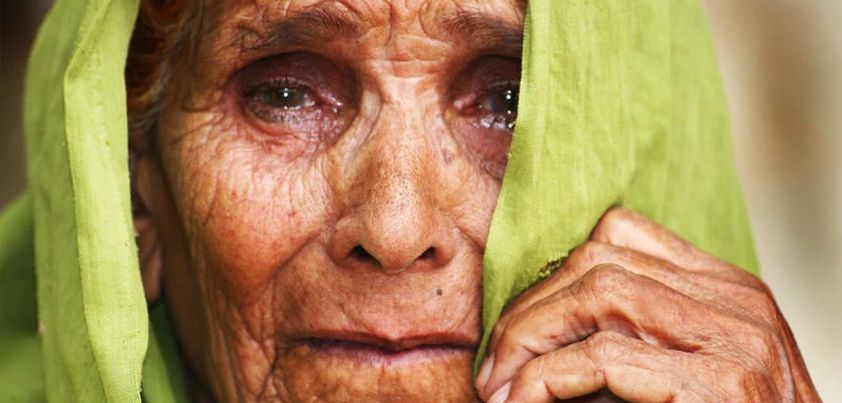 The major theme of this story by Chitra Banerjee Divakaruni is cultural conflict: the problems that can occur when people from countries with highly developed religious and cultural norms (in this case India) immigrate to the West. Widowed Mrs Dutti’s attempts to integrate with her son’s Americanized family cause problems on both sides. Fortunately, she finds the courage to admit she will be much happier back home. Tellingly, as the only Indian family in the neighbourhood, her son and daughter-in-law share her fear of not “fitting in”. Other themes include generational differences, gender roles, family loyalty, pride, courage and happiness. More…
The major theme of this story by Chitra Banerjee Divakaruni is cultural conflict: the problems that can occur when people from countries with highly developed religious and cultural norms (in this case India) immigrate to the West. Widowed Mrs Dutti’s attempts to integrate with her son’s Americanized family cause problems on both sides. Fortunately, she finds the courage to admit she will be much happier back home. Tellingly, as the only Indian family in the neighbourhood, her son and daughter-in-law share her fear of not “fitting in”. Other themes include generational differences, gender roles, family loyalty, pride, courage and happiness. More…
The Legend of Sleepy Hollow
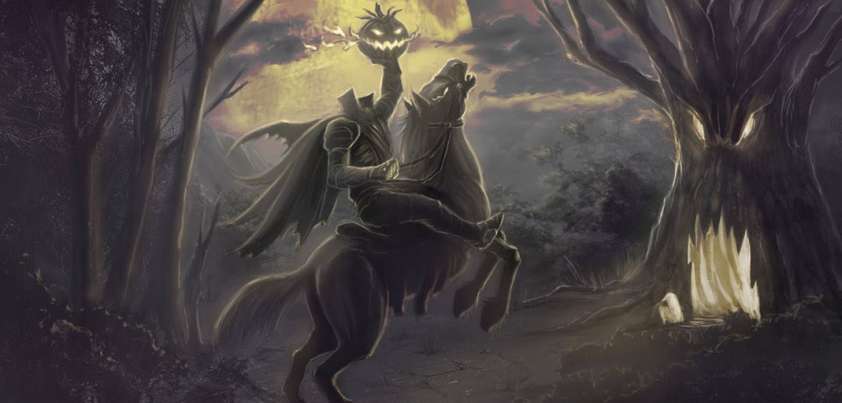 The central character of this story by Washington Irving is a greedy city schoolmaster who moves to a school in a sleepy country town and sets about getting rich by marrying the daughter of a wealthy landowner. The teacher’s proposal is rejected, and he disappears one night after being chased by the “ghost” of a headless horseman. Major themes include storytelling (tall-tales), superstition, greed (Ichabod), fickleness (Katrina), ambiguity (in relation to both the horseman’s identity and Ichabod’s fate), and city vs. country perceptions (conniving sophistication vs. integrity and practicality). More…
The central character of this story by Washington Irving is a greedy city schoolmaster who moves to a school in a sleepy country town and sets about getting rich by marrying the daughter of a wealthy landowner. The teacher’s proposal is rejected, and he disappears one night after being chased by the “ghost” of a headless horseman. Major themes include storytelling (tall-tales), superstition, greed (Ichabod), fickleness (Katrina), ambiguity (in relation to both the horseman’s identity and Ichabod’s fate), and city vs. country perceptions (conniving sophistication vs. integrity and practicality). More…
An Outpost of Progress
 Joseph Conrad’s major theme in this story is the hypocrisy of colonialism. Motivated by greed, the bumbling administrators of a remote African trading post rationalize their activities by talking about the sacredness of the civilizing work, and the merits of those who (go) about bringing light, and faith and commerce to the dark places of the earth. They denigrate the local tribesmen, but make no effort to learn their language or customs. Ironically, being cut off from civilization results in their moral, physical and mental decline to an even lower level of savagery. Themes: colonialism, greed, slavery, isolation, madness. More…
Joseph Conrad’s major theme in this story is the hypocrisy of colonialism. Motivated by greed, the bumbling administrators of a remote African trading post rationalize their activities by talking about the sacredness of the civilizing work, and the merits of those who (go) about bringing light, and faith and commerce to the dark places of the earth. They denigrate the local tribesmen, but make no effort to learn their language or customs. Ironically, being cut off from civilization results in their moral, physical and mental decline to an even lower level of savagery. Themes: colonialism, greed, slavery, isolation, madness. More…
Swimming Lessons
 The major themes of this entertaining story by diasporic author Rohinston Mistry are alienation, cultural adjustment, and memory. The plot alternates between the experiences of an unnamed Parsi immigrant living in Toronto, and his parent’s reaction to his nostalgic manuscript about growing up in Bombay. Swimming is a means of moving forward while staying afloat, and his swimming lessons in order to “fit in” could also be seen as a metaphor for surviving and flourishing in his adopted country. Other themes include loneliness and desire, fear, racism, aging and death, cause and effect. More…
The major themes of this entertaining story by diasporic author Rohinston Mistry are alienation, cultural adjustment, and memory. The plot alternates between the experiences of an unnamed Parsi immigrant living in Toronto, and his parent’s reaction to his nostalgic manuscript about growing up in Bombay. Swimming is a means of moving forward while staying afloat, and his swimming lessons in order to “fit in” could also be seen as a metaphor for surviving and flourishing in his adopted country. Other themes include loneliness and desire, fear, racism, aging and death, cause and effect. More…
The Most Dangerous Game
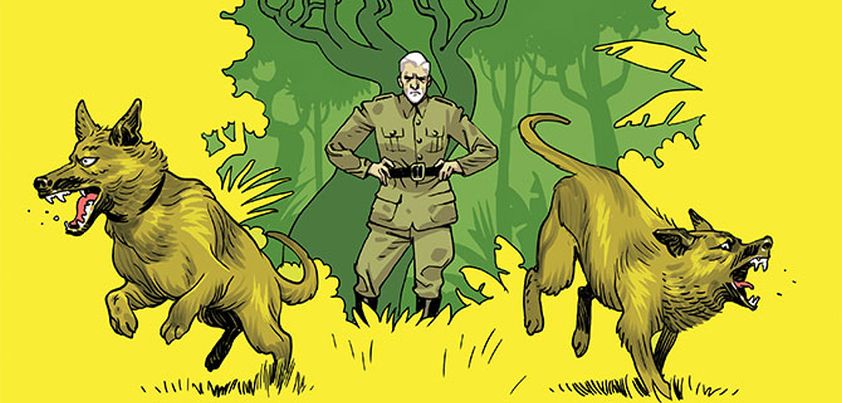 Although written almost a hundred years ago, this seemingly timeless adventure story from Richard Connell is still widely taught in schools. In addition to being an exciting, suspenseful read, one of the reasons for this is the continuing passionate debate about the ethics of hunting for sport. Rainsford the hunter has no regard for the rights or feelings of the animals he kills; Rainsford the hunted clearly thinks otherwise. Note the play on words in the title. Both the ‘game’ Zoroff plays and the ‘game’ he hunts are dangerous. Themes: trophy-hunting, man’s inhumanity to man, violence and cruelty, survival, revenge. More…
Although written almost a hundred years ago, this seemingly timeless adventure story from Richard Connell is still widely taught in schools. In addition to being an exciting, suspenseful read, one of the reasons for this is the continuing passionate debate about the ethics of hunting for sport. Rainsford the hunter has no regard for the rights or feelings of the animals he kills; Rainsford the hunted clearly thinks otherwise. Note the play on words in the title. Both the ‘game’ Zoroff plays and the ‘game’ he hunts are dangerous. Themes: trophy-hunting, man’s inhumanity to man, violence and cruelty, survival, revenge. More…
Babette’s Feast
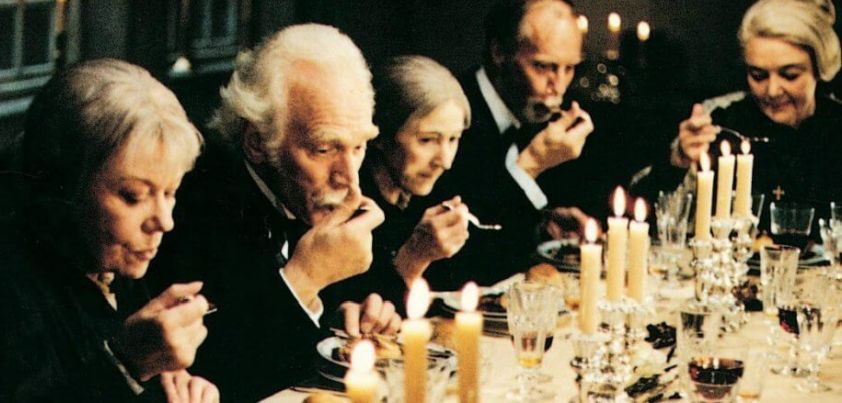 The major theme of this story by Isak Dinesen (aka Karen Blixen) is the transformative power of food. The lives of two aging Danish sisters, eight members of a dying religious sect, and a disillusioned French army general change when the sister’s maid, a refugee French revolutionary, wins the lottery and uses her winnings to prepare them a special meal. The meal brings the diners grace, forgiveness and the understanding that it is not sinful to enjoy life’s pleasures. The maid experiences a reinvigoration of her creative genius. Other themes include religious devotion, love, art and artistry, frugality, sacrifice, redemption. More…
The major theme of this story by Isak Dinesen (aka Karen Blixen) is the transformative power of food. The lives of two aging Danish sisters, eight members of a dying religious sect, and a disillusioned French army general change when the sister’s maid, a refugee French revolutionary, wins the lottery and uses her winnings to prepare them a special meal. The meal brings the diners grace, forgiveness and the understanding that it is not sinful to enjoy life’s pleasures. The maid experiences a reinvigoration of her creative genius. Other themes include religious devotion, love, art and artistry, frugality, sacrifice, redemption. More…
In the Penal Colony
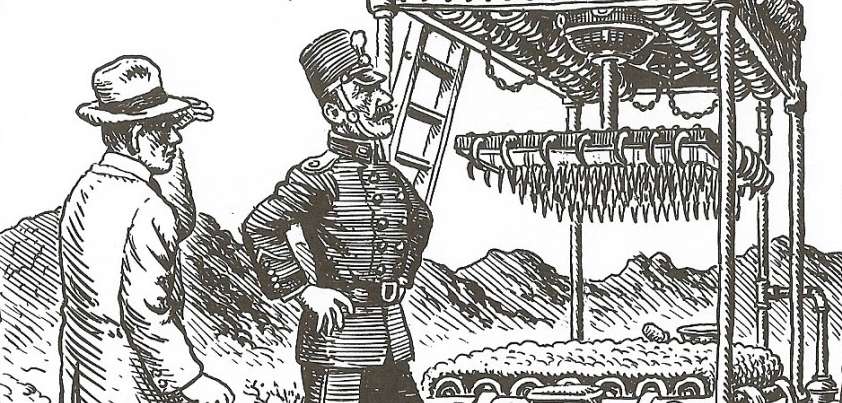 This Franz Kafka story is a study on what can happen when you put a psychopath in charge of a process (or country) in which they have unfettered power and can make decisions over life and death with impunity. The story deals with some heavy themes: justice, due process, capital punishment, torture, sadistic voyeurism, and the difficulty of institutional change (even if for the good!). Central to all this is the “machine”, which seems to know that its time has come and chooses to self-destruct along with the only person left who cares about it. More…
This Franz Kafka story is a study on what can happen when you put a psychopath in charge of a process (or country) in which they have unfettered power and can make decisions over life and death with impunity. The story deals with some heavy themes: justice, due process, capital punishment, torture, sadistic voyeurism, and the difficulty of institutional change (even if for the good!). Central to all this is the “machine”, which seems to know that its time has come and chooses to self-destruct along with the only person left who cares about it. More…
Bang-bang You’re Dead
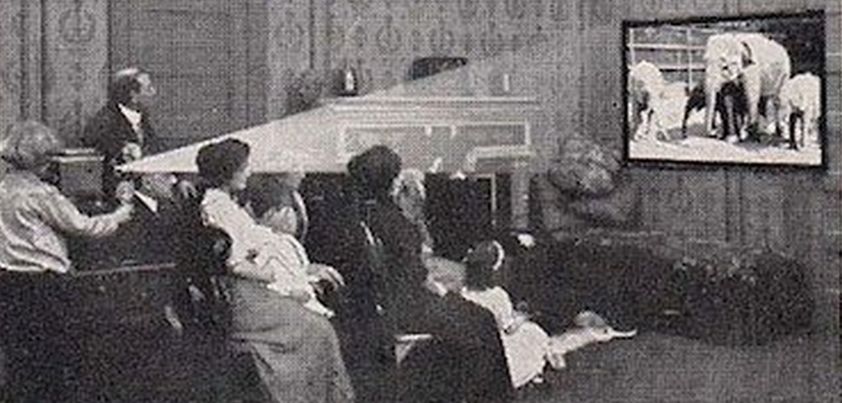 In this story from Muriel Spark, a group of friends watch home movie footage of protagonist Sybil’s life in Africa as she recalls memories of the time. Her observations highlight the difference between the vain way the characters in the films see themselves (or want to be seen) and their true personalities. Sybil was an intellectual but weak-willed girl/young woman who allowed herself to be dominated by others. In a favorite childhood game, the words “bang-bang you’re dead” always led to submission. Later in life, gunshots became “freeing” events. Themes: class, isolation, dominance and submission, false opinions vs. unpleasant truths. More…
In this story from Muriel Spark, a group of friends watch home movie footage of protagonist Sybil’s life in Africa as she recalls memories of the time. Her observations highlight the difference between the vain way the characters in the films see themselves (or want to be seen) and their true personalities. Sybil was an intellectual but weak-willed girl/young woman who allowed herself to be dominated by others. In a favorite childhood game, the words “bang-bang you’re dead” always led to submission. Later in life, gunshots became “freeing” events. Themes: class, isolation, dominance and submission, false opinions vs. unpleasant truths. More…
La Grande Bretèche
 In this story by Honoré de Balzac, an elderly French doctor entertains guests at a dinner party by relating how, by seducing a hotel maid to complete the puzzle, he was able to solve the mystery of a dilapidated, abandoned mansion. Upon completion of his narration the story continues: all the ladies rose from table … But there were some among them who had almost shivered at the last words. Themes include social class, marriage, betrayal, vengeance, and gallantry (on the part of the Spanish noble for the way he faced death without giving his lover away). More…
In this story by Honoré de Balzac, an elderly French doctor entertains guests at a dinner party by relating how, by seducing a hotel maid to complete the puzzle, he was able to solve the mystery of a dilapidated, abandoned mansion. Upon completion of his narration the story continues: all the ladies rose from table … But there were some among them who had almost shivered at the last words. Themes include social class, marriage, betrayal, vengeance, and gallantry (on the part of the Spanish noble for the way he faced death without giving his lover away). More…
The Shawl / Rosa
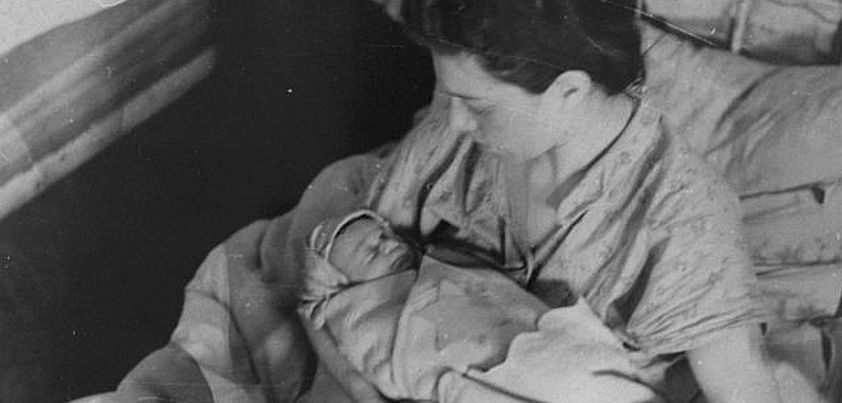 Today we are featuring two award-winning stories from Cynthia Ozick. The first, The Shawl, is set in Second World War Poland and deals with the horrors of the holocaust as experienced a young mother (Rosa), her infant child (Magda), and fourteen-year-old-niece (Stella). The second story, Rosa, is a sequel to the first. Set in the USA over thirty years later, it demonstrates the devastating long-term effects of the women’s war-time experiences. More…
Today we are featuring two award-winning stories from Cynthia Ozick. The first, The Shawl, is set in Second World War Poland and deals with the horrors of the holocaust as experienced a young mother (Rosa), her infant child (Magda), and fourteen-year-old-niece (Stella). The second story, Rosa, is a sequel to the first. Set in the USA over thirty years later, it demonstrates the devastating long-term effects of the women’s war-time experiences. More…
Flight
 The major theme of this story by John Steinbeck is a young man’s quest for manhood. An unsophisticated nineteen-year-old from an isolated farm is given his first task as a “man” when his widowed mother sends him to town alone to buy medicine and other supplies. While staying overnight at the home of a family friend, he gets drunk and stabs a man in an argument. The inexperienced youth flees into the mountains where, in addition to his pursuers, he must face the perils of nature. Other themes: isolation, innocence, lack of composure/self-control, frontier justice, struggle, death. More…
The major theme of this story by John Steinbeck is a young man’s quest for manhood. An unsophisticated nineteen-year-old from an isolated farm is given his first task as a “man” when his widowed mother sends him to town alone to buy medicine and other supplies. While staying overnight at the home of a family friend, he gets drunk and stabs a man in an argument. The inexperienced youth flees into the mountains where, in addition to his pursuers, he must face the perils of nature. Other themes: isolation, innocence, lack of composure/self-control, frontier justice, struggle, death. More…
The Nose
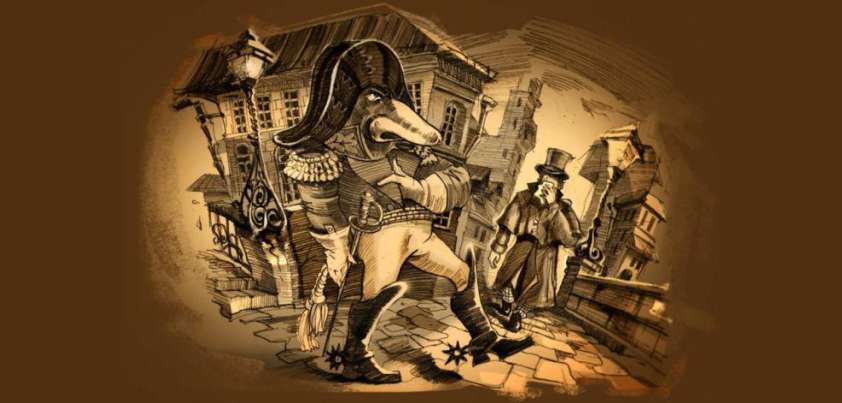 Nikolai Gogol was a pioneer in absurdist fiction, writing this story almost eighty years before Franz Kafka’s iconic Metamorphosis. Gogol’s absurdism served an important purpose: social criticism. The Nose is a comical account of “Major” Platon Kovaloff, a vain, pompous and narcissistic municipal official who goes looking for his wandering proboscis. Kovaloff is so obsessed with improving and capitalizing on his social position that he feels emasculated without it. The story satirizes three aspects of Russian society: 1) the corrupt government bureaucracy; 2) its fixation on superficial signs of importance; and 3) how different social classes view and treat women. More…
Nikolai Gogol was a pioneer in absurdist fiction, writing this story almost eighty years before Franz Kafka’s iconic Metamorphosis. Gogol’s absurdism served an important purpose: social criticism. The Nose is a comical account of “Major” Platon Kovaloff, a vain, pompous and narcissistic municipal official who goes looking for his wandering proboscis. Kovaloff is so obsessed with improving and capitalizing on his social position that he feels emasculated without it. The story satirizes three aspects of Russian society: 1) the corrupt government bureaucracy; 2) its fixation on superficial signs of importance; and 3) how different social classes view and treat women. More…
Bright and Morning Star
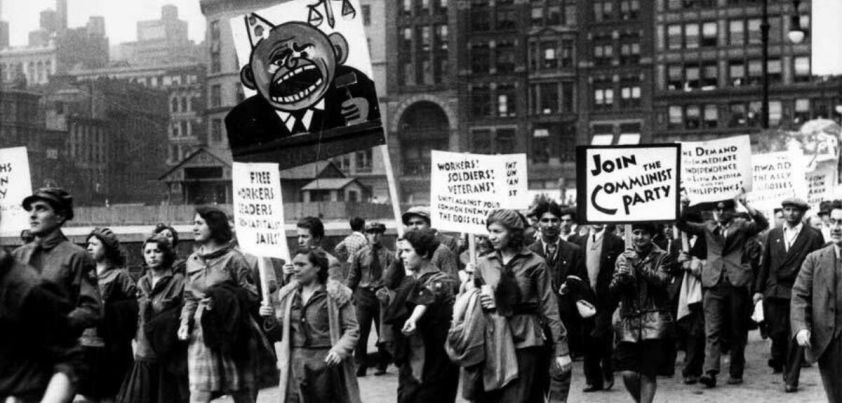 This is the final story in Richard Wright’s hard-hitting collection Uncle Tom’s Children. Set in the American South during the 1920s, a proud African-American woman and her two sons have embraced communism in the hope of overcoming entrenched inequity and persecution. Both sons are organizers of the local communist cell. One son is already in prison and, when the woman and other son refuse to reveal the names of fellow cell members, the town sheriff and a white mob resort to deception, brutality, torture and murder. Themes: racism, racial and political violence, communism, loyalty & betrayal, motherly love, martyrdom. More…
This is the final story in Richard Wright’s hard-hitting collection Uncle Tom’s Children. Set in the American South during the 1920s, a proud African-American woman and her two sons have embraced communism in the hope of overcoming entrenched inequity and persecution. Both sons are organizers of the local communist cell. One son is already in prison and, when the woman and other son refuse to reveal the names of fellow cell members, the town sheriff and a white mob resort to deception, brutality, torture and murder. Themes: racism, racial and political violence, communism, loyalty & betrayal, motherly love, martyrdom. More…
The Curious Case of Benjamin Button
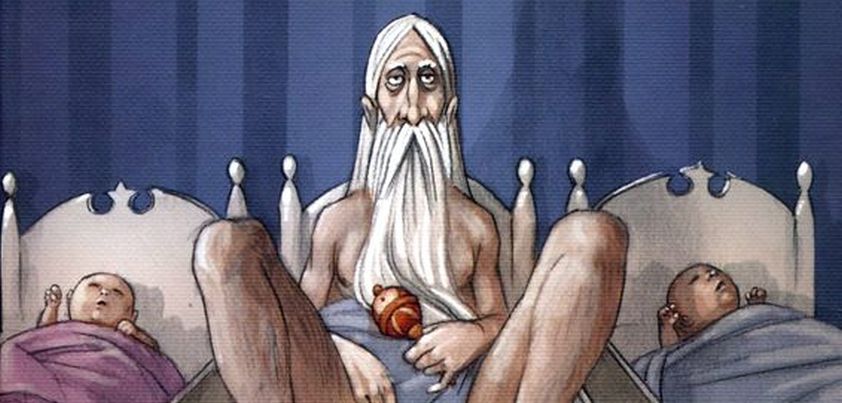 This F. Scott Fitzgerald story recounts the life of a man who grows “younger” by getting “older”. Themes include identity, social standing, and self-centeredness. The major theme, identity, is explored in the context of chronological age dictating expected behavior (e.g. “young” Benjamin obliges his father by constantly breaking things, whereas his “old” body would rather be smoking cigars). The people around Benjamin care more about protecting their reputations against gossip and scandal than they do about his condition. Finally, Benjamin proves himself as heartless as they are by hiding the problem and luring an unsuspecting woman into a doomed marriage. More…
This F. Scott Fitzgerald story recounts the life of a man who grows “younger” by getting “older”. Themes include identity, social standing, and self-centeredness. The major theme, identity, is explored in the context of chronological age dictating expected behavior (e.g. “young” Benjamin obliges his father by constantly breaking things, whereas his “old” body would rather be smoking cigars). The people around Benjamin care more about protecting their reputations against gossip and scandal than they do about his condition. Finally, Benjamin proves himself as heartless as they are by hiding the problem and luring an unsuspecting woman into a doomed marriage. More…
Blackberry Winter
 This story by Robert Penn Warren is set in rural Tennessee during the 1930s. A nine-year-old boy is affected for life when a menacing-looking tramp with a large switchblade in his pocket, carrying a mysterious newspaper-wrapped package, visits his family farm. Although the surly man is not dressed for farm work, the boy’s mother offers him food and some odd jobs. The tramp is clearly unhappy about the work she offers, and shows no gratitude when the boy’s father pays him and orders him off the property. Themes include innocence, identity, man (farming) vs. nature, poverty, dignity and father-son relationships. More…
This story by Robert Penn Warren is set in rural Tennessee during the 1930s. A nine-year-old boy is affected for life when a menacing-looking tramp with a large switchblade in his pocket, carrying a mysterious newspaper-wrapped package, visits his family farm. Although the surly man is not dressed for farm work, the boy’s mother offers him food and some odd jobs. The tramp is clearly unhappy about the work she offers, and shows no gratitude when the boy’s father pays him and orders him off the property. Themes include innocence, identity, man (farming) vs. nature, poverty, dignity and father-son relationships. More…
The Sky is Gray
 Set in the American South during the 1940s, this coming of age story by Ernest Gaines features an eight-year-old African-American boy from an impoverished family. Suffering a toothache, his mother takes him so see a dentist. During the trip he experiences the humiliation of segregation, is inspired by a debate in the dentist’s waiting room, stands up for his mother when threatened in a “colored” café, and experiences kindness on the “white” side of town. Following his uncompromising mother’s example, he conducts himself with courage and dignity. Themes: mother-son relationships, pride, racism and segregation, religious acceptance vs. knowledge and questioning. More…
Set in the American South during the 1940s, this coming of age story by Ernest Gaines features an eight-year-old African-American boy from an impoverished family. Suffering a toothache, his mother takes him so see a dentist. During the trip he experiences the humiliation of segregation, is inspired by a debate in the dentist’s waiting room, stands up for his mother when threatened in a “colored” café, and experiences kindness on the “white” side of town. Following his uncompromising mother’s example, he conducts himself with courage and dignity. Themes: mother-son relationships, pride, racism and segregation, religious acceptance vs. knowledge and questioning. More…
The Snows of Kilimanjaro
 The major themes of this stream of conscience narrative by Ernest Hemingway are death, and regret for one’s life choices and things left undone. A bitter, failed writer lies dying in a safari camp on the plains below Mt Kilimanjaro. While cruelly taunting his wife, he evaluates his life through a series of flashbacks. Having lived an adventurous, hedonistic life including loving and leaving many women, each with more money than the last, he has a lot to reflect upon. Minor themes introduced through the flashbacks include post-war (WW1) trauma, loss, loneliness, misogyny and redemption. More…
The major themes of this stream of conscience narrative by Ernest Hemingway are death, and regret for one’s life choices and things left undone. A bitter, failed writer lies dying in a safari camp on the plains below Mt Kilimanjaro. While cruelly taunting his wife, he evaluates his life through a series of flashbacks. Having lived an adventurous, hedonistic life including loving and leaving many women, each with more money than the last, he has a lot to reflect upon. Minor themes introduced through the flashbacks include post-war (WW1) trauma, loss, loneliness, misogyny and redemption. More…
Sonny’s Blues
 The major theme of this rather intense story from James Baldwin is that for many people, life involves a constant cycle of suffering. (I was aware that this was only a moment, that the world waited outside, as hungry as a tiger, and that trouble stretched above us, longer than the sky.) The plot explores the adult relationship between an African-American teacher and Sonny, his musically gifted estranged brother, after Sonny’s arrest and imprisonment for drug trafficking. Other themes include race and racism, substance abuse, alienation, reconciliation, family/brotherly love, and the inspirational and healing power of music. More…
The major theme of this rather intense story from James Baldwin is that for many people, life involves a constant cycle of suffering. (I was aware that this was only a moment, that the world waited outside, as hungry as a tiger, and that trouble stretched above us, longer than the sky.) The plot explores the adult relationship between an African-American teacher and Sonny, his musically gifted estranged brother, after Sonny’s arrest and imprisonment for drug trafficking. Other themes include race and racism, substance abuse, alienation, reconciliation, family/brotherly love, and the inspirational and healing power of music. More…
Jeeves Takes Charge
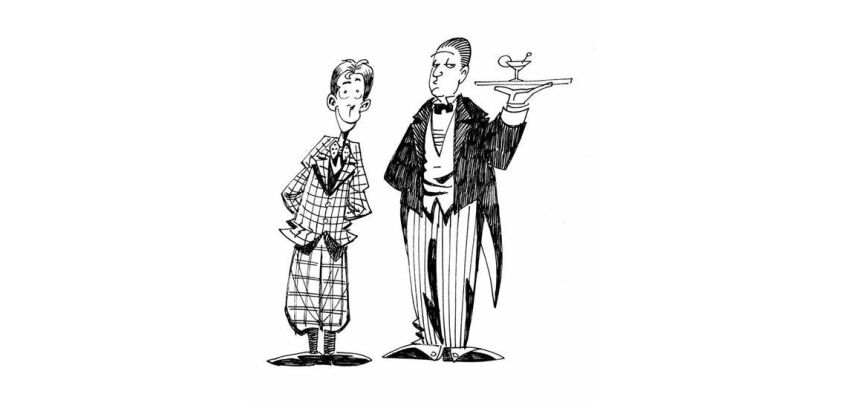 This story is from Carry on Jeeves, the third of seventeen “Jeeves books” by P. G. Wodehouse. Its significance is that we learn how Bertie Wooster, a likeable but hapless upper-class layabout living off family money, came across and learned to depend upon his wonder valet Jeeves. In his first forty-eight hours on the job, Jeeves saves Bertie from losing his inheritance, and helps him avoid what would have been an even worse fate – marriage to Florence, his dominating, snobby fiancé. Themes include engagement and marriage, social class and wealth, scandal, master-servant relationships. More…
This story is from Carry on Jeeves, the third of seventeen “Jeeves books” by P. G. Wodehouse. Its significance is that we learn how Bertie Wooster, a likeable but hapless upper-class layabout living off family money, came across and learned to depend upon his wonder valet Jeeves. In his first forty-eight hours on the job, Jeeves saves Bertie from losing his inheritance, and helps him avoid what would have been an even worse fate – marriage to Florence, his dominating, snobby fiancé. Themes include engagement and marriage, social class and wealth, scandal, master-servant relationships. More…
The Turning
 This story from Tim Winton includes themes of alcohol abuse, domestic violence, child neglect, shame, friendship and faith. A mother of two whose hard-drinking husband is increasingly violent towards her becomes close friends with a “Ken-and-Barbie” like new couple in town. When the couple share a story of how religious faith helped turn their lives around, she rejects the notion as not for her. Later, the impulsive purchase of a novelty “snow dome” featuring a hunky-looking Jesus walking on water not only provides amusement, but also becomes the catalyst for an epiphany as she endures a brutal marital rape.
This story from Tim Winton includes themes of alcohol abuse, domestic violence, child neglect, shame, friendship and faith. A mother of two whose hard-drinking husband is increasingly violent towards her becomes close friends with a “Ken-and-Barbie” like new couple in town. When the couple share a story of how religious faith helped turn their lives around, she rejects the notion as not for her. Later, the impulsive purchase of a novelty “snow dome” featuring a hunky-looking Jesus walking on water not only provides amusement, but also becomes the catalyst for an epiphany as she endures a brutal marital rape.
Parker’s Back
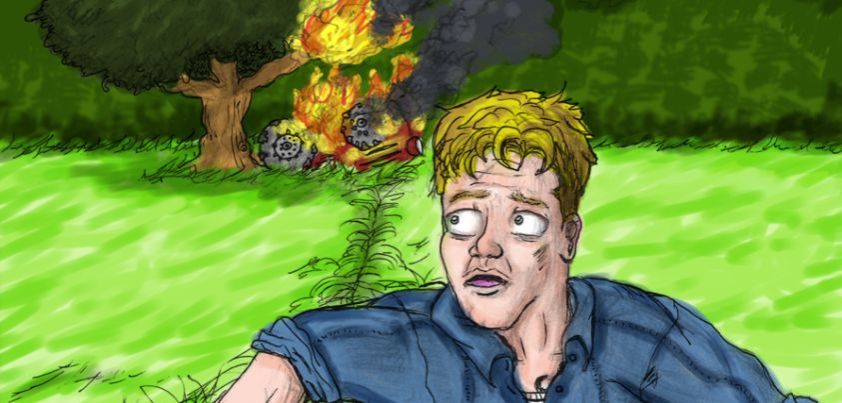 Like many Flannery O’Connor stories, the main theme of Parker’s Back is man’s struggle against religion. The main character here is a simple minded, poorly educated farm worker. He is selfish, doesn’t believe in God, and says he hates his wife. His one love is tattoos, which he believes express his manhood. Through his last tattoo, he finds grace. Unfortunately, his fundamentalist wife spoils the experience. In doing so, she may well have ruined both of their lives. Other themes: identity, connection (with the tattooed man), dissatisfaction, alcoholism, religious awakening, grace, religious bigotry. More…
Like many Flannery O’Connor stories, the main theme of Parker’s Back is man’s struggle against religion. The main character here is a simple minded, poorly educated farm worker. He is selfish, doesn’t believe in God, and says he hates his wife. His one love is tattoos, which he believes express his manhood. Through his last tattoo, he finds grace. Unfortunately, his fundamentalist wife spoils the experience. In doing so, she may well have ruined both of their lives. Other themes: identity, connection (with the tattooed man), dissatisfaction, alcoholism, religious awakening, grace, religious bigotry. More…
The Jolly Corner
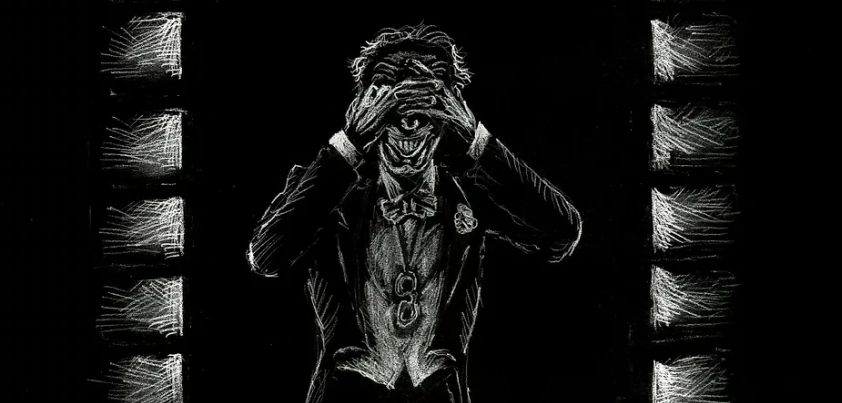 In this unusual horror story from Henry James, a wealthy man stalks his empty, supposedly haunted family mansion looking for the ghost of the person he might have become. Having returned to America after thirty-three years living a selfish, frivolous life in Europe, the protagonist discovers a hidden talent for business and architecture. He wonders how life would have turned out if he had pursued these interests when younger, and decides that the only way to find out is to find and confront his ghostly alter ego. Themes: change, materialism, life choices and consequences, emptiness, commitment, the supernatural. More…
In this unusual horror story from Henry James, a wealthy man stalks his empty, supposedly haunted family mansion looking for the ghost of the person he might have become. Having returned to America after thirty-three years living a selfish, frivolous life in Europe, the protagonist discovers a hidden talent for business and architecture. He wonders how life would have turned out if he had pursued these interests when younger, and decides that the only way to find out is to find and confront his ghostly alter ego. Themes: change, materialism, life choices and consequences, emptiness, commitment, the supernatural. More…
Slaughter House
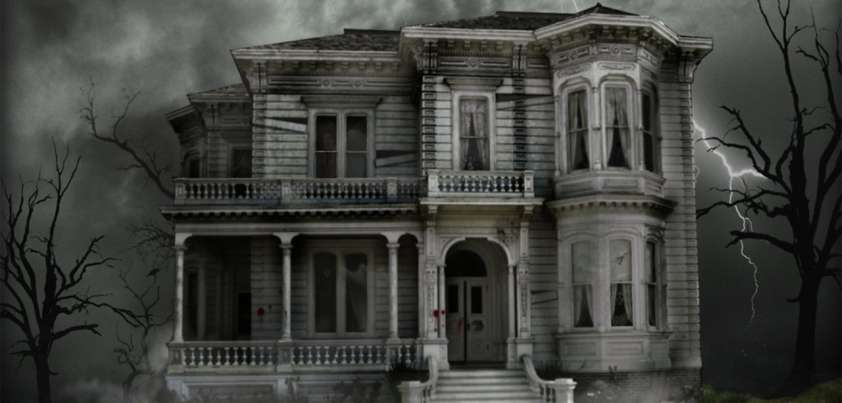 Although highly regarded as a classic, chilling ghost story, die-hard Richard Matheson fans may find Slaughter House somewhat disappointing. Matheson deliberately changes his normal crisp, easy to read writing style to experiment with the formality of mid-Victorian writing. The result: some extremely obscure vocabulary and very long, pompously formal sentences that are sometimes disjointed and confusing. The story itself is captivating. Two brothers, whose described relationship suggests a little more than brotherly love, fall for the lustful ghost of a young woman that enchants, has its way with, and then tries to kill them. Only one of the three survives! More…
Although highly regarded as a classic, chilling ghost story, die-hard Richard Matheson fans may find Slaughter House somewhat disappointing. Matheson deliberately changes his normal crisp, easy to read writing style to experiment with the formality of mid-Victorian writing. The result: some extremely obscure vocabulary and very long, pompously formal sentences that are sometimes disjointed and confusing. The story itself is captivating. Two brothers, whose described relationship suggests a little more than brotherly love, fall for the lustful ghost of a young woman that enchants, has its way with, and then tries to kill them. Only one of the three survives! More…
Children of the Corn
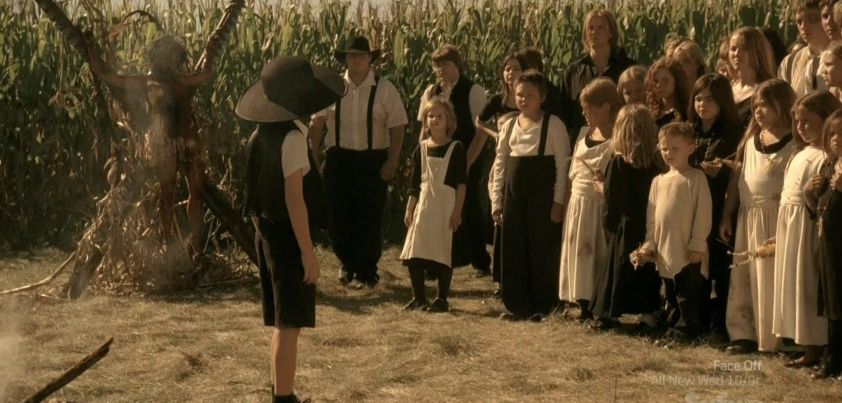 Combine a boy with his throat cut who runs out onto a country road, a seemingly deserted town where the only community building still in use is a desecrated church, a hoard of murderous children, and a mysterious presence living in the surrounding cornfields, and you have a typical Stephen King horror/thriller. You get the feeling that King deliberately set out to make sure that readers wouldn’t be too upset when the main characters (a bickering couple driving through the American Midwest) meet their inevitable gruesome end. Themes: cultism, exploited religion, human sacrifice, the supernatural. More…
Combine a boy with his throat cut who runs out onto a country road, a seemingly deserted town where the only community building still in use is a desecrated church, a hoard of murderous children, and a mysterious presence living in the surrounding cornfields, and you have a typical Stephen King horror/thriller. You get the feeling that King deliberately set out to make sure that readers wouldn’t be too upset when the main characters (a bickering couple driving through the American Midwest) meet their inevitable gruesome end. Themes: cultism, exploited religion, human sacrifice, the supernatural. More…
Naming the Names
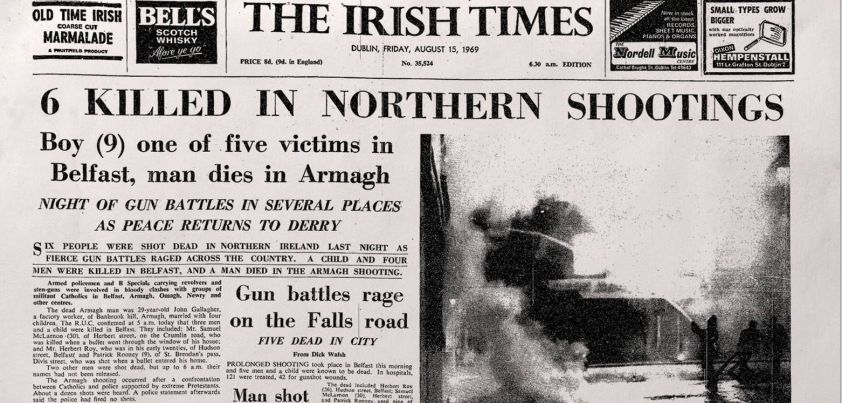 Set during the Irish Troubles, the major themes of his story by Anne Devlin are love, loyalty and betrayal. Other themes include identity, the cyclical nature of violence, urban change/devastation, taking responsibility for one’s actions, and the humanization of terrorism. The plot is non-linear, with regular flashbacks to earlier times. An insecure woman who has been indoctrinated in the Republican cause since childhood joins the IRA. She plays a minor role until a decision is made to target a prominent British official, and finds herself perfectly placed to lure his son (who is also her lover!) into a deadly trap.
Set during the Irish Troubles, the major themes of his story by Anne Devlin are love, loyalty and betrayal. Other themes include identity, the cyclical nature of violence, urban change/devastation, taking responsibility for one’s actions, and the humanization of terrorism. The plot is non-linear, with regular flashbacks to earlier times. An insecure woman who has been indoctrinated in the Republican cause since childhood joins the IRA. She plays a minor role until a decision is made to target a prominent British official, and finds herself perfectly placed to lure his son (who is also her lover!) into a deadly trap.
More…
The Secret Sharer
 The term secret sharer in this Joseph Conrad adventure could apply to both the protagonist (a young ship’s captain preparing for his first sea command) and his fugitive cabin guest. The similarities between them in terms of age, appearance and background suggest that Conrad is using the guest as a foil to highlight the captain’s strengths and weaknesses. Unlike the guest, the captain is unsure of himself and does not project the self-confidence and authority needed to gain the respect of his older, more experienced officers. Themes include leadership, isolation, identity, duality, self-awareness, self-mastery, and the power of the sea. More…
The term secret sharer in this Joseph Conrad adventure could apply to both the protagonist (a young ship’s captain preparing for his first sea command) and his fugitive cabin guest. The similarities between them in terms of age, appearance and background suggest that Conrad is using the guest as a foil to highlight the captain’s strengths and weaknesses. Unlike the guest, the captain is unsure of himself and does not project the self-confidence and authority needed to gain the respect of his older, more experienced officers. Themes include leadership, isolation, identity, duality, self-awareness, self-mastery, and the power of the sea. More…
Brokeback Mountain
 Annie Proulx’s Brokeback Mountain is an unsettling story about how a sexual encounter between two male ranch-hands, Jack and Ennis, develops into a twenty-year love affair. The relationship develops over short, intimate camping trips, sometimes years apart. Jack wants more but Ennis’s marriage, social pressures of the day (1960’s), and anti-gay upbringing prevent him from “coming out”. It is not until Jack dies, possibly in a gay hate crime, that Ennis understands the intensity of their feelings for one another. Themes: desire, love, repressed sexuality, machismo, homophobia, frustration and acceptance (if you can’t fix it, you’ve got to stand it). More…
Annie Proulx’s Brokeback Mountain is an unsettling story about how a sexual encounter between two male ranch-hands, Jack and Ennis, develops into a twenty-year love affair. The relationship develops over short, intimate camping trips, sometimes years apart. Jack wants more but Ennis’s marriage, social pressures of the day (1960’s), and anti-gay upbringing prevent him from “coming out”. It is not until Jack dies, possibly in a gay hate crime, that Ennis understands the intensity of their feelings for one another. Themes: desire, love, repressed sexuality, machismo, homophobia, frustration and acceptance (if you can’t fix it, you’ve got to stand it). More…
Paul’s Case
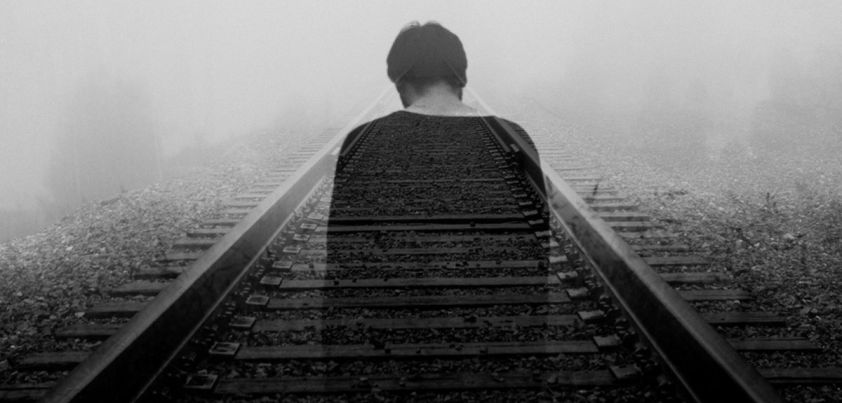 Willa Cather’s ‘Paul’ is not your average high schooler. Whatever it is that makes him different (interpretations vary from sexuality to autism or some kind of nervous condition) is causing problems in both his school and home lives. The things that keep Paul going are his daydreams of one day living the life of the rich and famous, and his love of music and the theatre. When the latter two are taken away, he decides on drastic action (or is it all another daydream?). Themes: being ‘different’, alienation, fantasy vs. reality, rebellion, deception/fraud, living the dream, despair. More…
Willa Cather’s ‘Paul’ is not your average high schooler. Whatever it is that makes him different (interpretations vary from sexuality to autism or some kind of nervous condition) is causing problems in both his school and home lives. The things that keep Paul going are his daydreams of one day living the life of the rich and famous, and his love of music and the theatre. When the latter two are taken away, he decides on drastic action (or is it all another daydream?). Themes: being ‘different’, alienation, fantasy vs. reality, rebellion, deception/fraud, living the dream, despair. More…
Patriotism
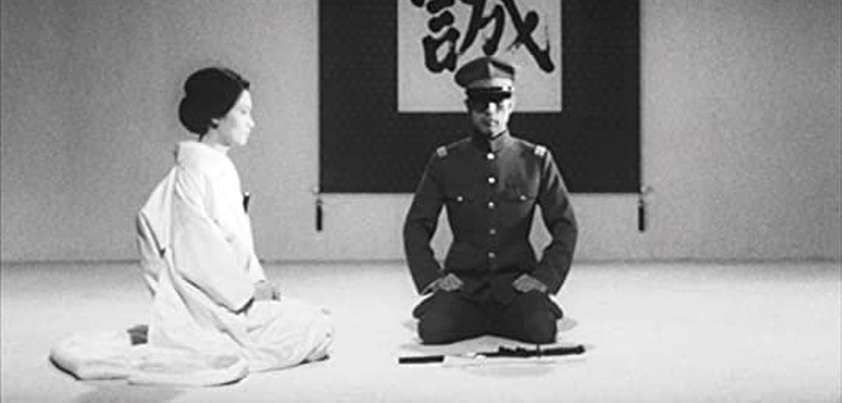 This gut-wrenching tale from Yukio Mishima deals with traditional Japanese perceptions of duty, honor, love and ritual suicide. Regarded as one of the most powerful stories of the twentieth century, it is beautifully (almost lovingly) written and does not spare the easily offended or queasy reader. The lovemaking scenes are tastefully erotic, and the description of Lieutenant Shinji’s seppuku (harakiri) is gruesome in its detail. A major theme is loyalty: to one’s country (Emperor), friends, family honor, and spouse. Another is beauty: of youth, of love, of life and (perhaps difficult for many Westerners to understand) of an honorable death. More…
This gut-wrenching tale from Yukio Mishima deals with traditional Japanese perceptions of duty, honor, love and ritual suicide. Regarded as one of the most powerful stories of the twentieth century, it is beautifully (almost lovingly) written and does not spare the easily offended or queasy reader. The lovemaking scenes are tastefully erotic, and the description of Lieutenant Shinji’s seppuku (harakiri) is gruesome in its detail. A major theme is loyalty: to one’s country (Emperor), friends, family honor, and spouse. Another is beauty: of youth, of love, of life and (perhaps difficult for many Westerners to understand) of an honorable death. More…
A Jury of Her Peers
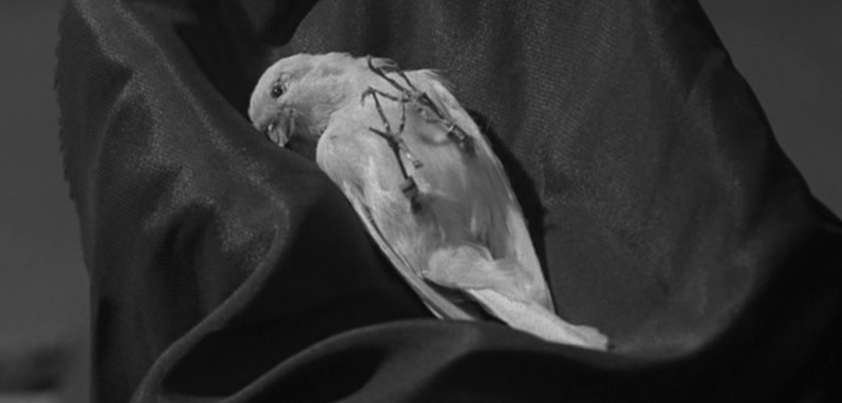 The three dominant themes of this story by Susan Glaspell are feminism (gender roles), deception and justice. Men investigating a farmer’s murder bring two of their wives to the scene of the crime (his farmhouse) to collect clothing, etc. for the suspect (the farmer’s wife) while in jail. Ironically, although the men mock the women’s ability to contribute to the investigation, the wives find evidence that would convict the suspect. They then face a moral dilemma. A jury of men would not understand the suspect’s suffering. Would justice be served by proving her guilt? More…
The three dominant themes of this story by Susan Glaspell are feminism (gender roles), deception and justice. Men investigating a farmer’s murder bring two of their wives to the scene of the crime (his farmhouse) to collect clothing, etc. for the suspect (the farmer’s wife) while in jail. Ironically, although the men mock the women’s ability to contribute to the investigation, the wives find evidence that would convict the suspect. They then face a moral dilemma. A jury of men would not understand the suspect’s suffering. Would justice be served by proving her guilt? More…
The Red-Headed League
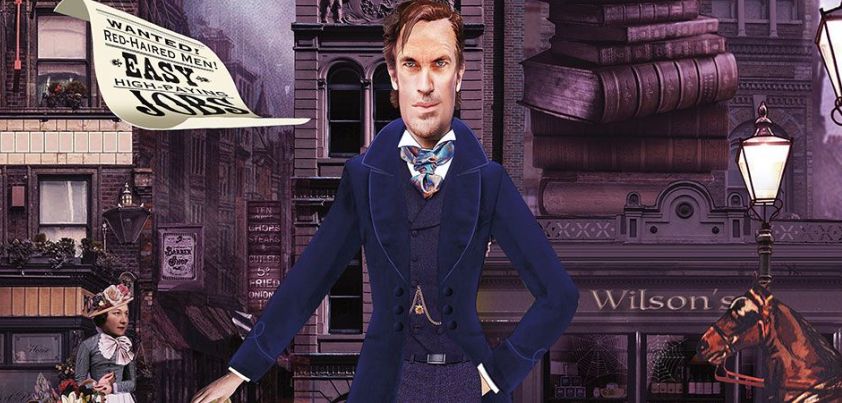 A common theme in most detective stories is superior observation skills and deductive reasoning. A defining feature of Arthur Conan Doyle’s Red-Headed League is the way the facts presented by the gullible Wilson appear so bizarre to Watson as to defy interpretation. This prompts Holmes’s to quip: Omne ignotum pro magnifico [we exaggerate the importance of the unknown]. Once he dismisses the Red-Headed League as a distraction, identifying the crime in progress becomes a straightforward matter for the great detective. Other themes include deception (appearance vs. reality), gullibility, greed (of both the criminals and Wilson), crime and justice. More…
A common theme in most detective stories is superior observation skills and deductive reasoning. A defining feature of Arthur Conan Doyle’s Red-Headed League is the way the facts presented by the gullible Wilson appear so bizarre to Watson as to defy interpretation. This prompts Holmes’s to quip: Omne ignotum pro magnifico [we exaggerate the importance of the unknown]. Once he dismisses the Red-Headed League as a distraction, identifying the crime in progress becomes a straightforward matter for the great detective. Other themes include deception (appearance vs. reality), gullibility, greed (of both the criminals and Wilson), crime and justice. More…
The Country Husband
 Rather than wide-open spaces far from a city, John Cheever’s “country husband” lives on a large block in an upper-class New England suburb. A near-death experience results in a growing awareness of the shortcomings of his way of life. He becomes more demanding and impulsive, leading to a dangerous infatuation with an underage teen, out-of-character behavior that causes his family to become social outcasts, and an argument that almost destroys his marriage. A psychiatrist has an innovative solution. Themes: appearances vs. reality, conformity, isolation, loneliness, lack of fulfillment, materialism, marriage (gender roles/domesticity, lack of communication/intimacy,), sexual fantasy. More…
Rather than wide-open spaces far from a city, John Cheever’s “country husband” lives on a large block in an upper-class New England suburb. A near-death experience results in a growing awareness of the shortcomings of his way of life. He becomes more demanding and impulsive, leading to a dangerous infatuation with an underage teen, out-of-character behavior that causes his family to become social outcasts, and an argument that almost destroys his marriage. A psychiatrist has an innovative solution. Themes: appearances vs. reality, conformity, isolation, loneliness, lack of fulfillment, materialism, marriage (gender roles/domesticity, lack of communication/intimacy,), sexual fantasy. More…
Fever
 A cursory first reading of this story often leaves students confused. John Wideman’s innovative style involves multiple voices, some of which are not even identified, and randomly traveling both backwards and forwards in time. The grim narrative is prefaced as a tribute to the people (mostly free African-Americans) who heroically nursed the sick and buried the dead during the Philadelphia yellow fever epidemic of 1793. The fever serves as a metaphor for the effects of the story’s main themes (prejudice and racism), which can potentially destroy both victims and perpetrators. Other themes: slavery, fear, suffering, death, despair. More…
A cursory first reading of this story often leaves students confused. John Wideman’s innovative style involves multiple voices, some of which are not even identified, and randomly traveling both backwards and forwards in time. The grim narrative is prefaced as a tribute to the people (mostly free African-Americans) who heroically nursed the sick and buried the dead during the Philadelphia yellow fever epidemic of 1793. The fever serves as a metaphor for the effects of the story’s main themes (prejudice and racism), which can potentially destroy both victims and perpetrators. Other themes: slavery, fear, suffering, death, despair. More…
The Prussian Officer
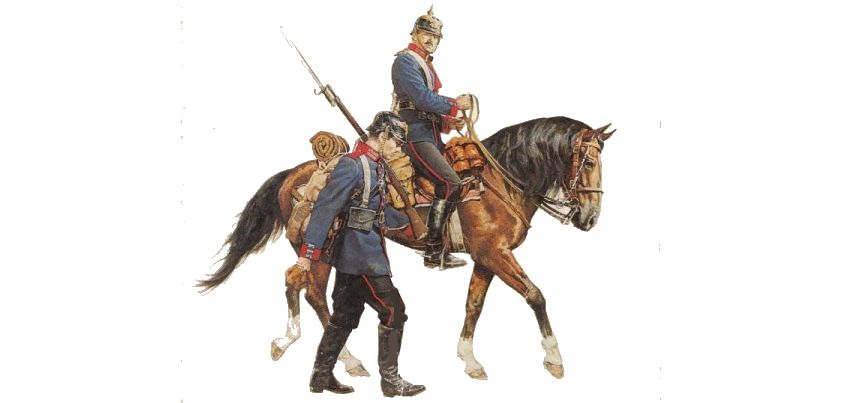 The central themes of D. H. Lawrence’s The Prussian Officer are homoerotic attraction and abuse of power. An aristocratic officer becomes envious of and sexually attracted towards his orderly. Drawn by the twenty-two-year-old’s youthful innocence and vigor, the officer denies and tries to repress his feelings. Sensing what is happening, the orderly is cooler than usual towards him. The agitated officer responds cruelly, and the tension between them mounts until reaching a point where the orderly can take no more. Minor themes: (the officer) jealousy, denial, obsession, sadism; (the orderly) duty, loss of innocence, humiliation, isolation, loss of self-control. More…
The central themes of D. H. Lawrence’s The Prussian Officer are homoerotic attraction and abuse of power. An aristocratic officer becomes envious of and sexually attracted towards his orderly. Drawn by the twenty-two-year-old’s youthful innocence and vigor, the officer denies and tries to repress his feelings. Sensing what is happening, the orderly is cooler than usual towards him. The agitated officer responds cruelly, and the tension between them mounts until reaching a point where the orderly can take no more. Minor themes: (the officer) jealousy, denial, obsession, sadism; (the orderly) duty, loss of innocence, humiliation, isolation, loss of self-control. More…
Flowers for Algernon
 This touching short story from Daniel Keyes is about a mentally handicapped man who undergoes experimental surgery to enhance his intelligence. The operation’s initial success highlights an interesting aspect of intelligence: the very gifted can be as out of touch with reality and friendless as the intellectually challenged. The story raises an important issue: How far should medical science go in tampering with nature or, as some would say, the will of God? Perhaps the answer lies in Charlie’s ultimate fate, ironically going backwards in intelligence rather than forwards. Other themes include innocence, friendship, compassion, bullying and sacrifice. More…
This touching short story from Daniel Keyes is about a mentally handicapped man who undergoes experimental surgery to enhance his intelligence. The operation’s initial success highlights an interesting aspect of intelligence: the very gifted can be as out of touch with reality and friendless as the intellectually challenged. The story raises an important issue: How far should medical science go in tampering with nature or, as some would say, the will of God? Perhaps the answer lies in Charlie’s ultimate fate, ironically going backwards in intelligence rather than forwards. Other themes include innocence, friendship, compassion, bullying and sacrifice. More…
The Hospice
 Author Robert Aickman preferred to be called a writer of “strange fiction” rather than ghost or horror stories. The Hospice, considered one of his best, is a good example of why. The story is full of unexplained twists and turns. It builds to what readers expect will be a typical horror climax, then seemingly falls flat with the protagonist safely on his way home. But is he? It’s easy to see why Aickman has been called the English Kafka. Was it a dream? Delirium caused by an animal bite? Supernatural forces? Or did he die along the way? More…
Author Robert Aickman preferred to be called a writer of “strange fiction” rather than ghost or horror stories. The Hospice, considered one of his best, is a good example of why. The story is full of unexplained twists and turns. It builds to what readers expect will be a typical horror climax, then seemingly falls flat with the protagonist safely on his way home. But is he? It’s easy to see why Aickman has been called the English Kafka. Was it a dream? Delirium caused by an animal bite? Supernatural forces? Or did he die along the way? More…
Debbie and Julie
 This poignant story from Doris Lessing deals with the experiences of Julie, a runaway teen in her last year of high school. ‘Accidentally’ impregnated, she runs away from home out of fear of her father’s reaction. She flees to London where Debbie, a compassionate call girl, takes her in and acts as a protector and mother figure. Unfortunately, Debbie is away when the baby comes. Julie carries out a grotesque self-birthing plan and must face the difficult choice regarding the baby’s future alone. Themes include parent-child relationships, innocence vs worldliness, choices and consequences, compassion, desperation, abandonment and regret. More…
This poignant story from Doris Lessing deals with the experiences of Julie, a runaway teen in her last year of high school. ‘Accidentally’ impregnated, she runs away from home out of fear of her father’s reaction. She flees to London where Debbie, a compassionate call girl, takes her in and acts as a protector and mother figure. Unfortunately, Debbie is away when the baby comes. Julie carries out a grotesque self-birthing plan and must face the difficult choice regarding the baby’s future alone. Themes include parent-child relationships, innocence vs worldliness, choices and consequences, compassion, desperation, abandonment and regret. More…